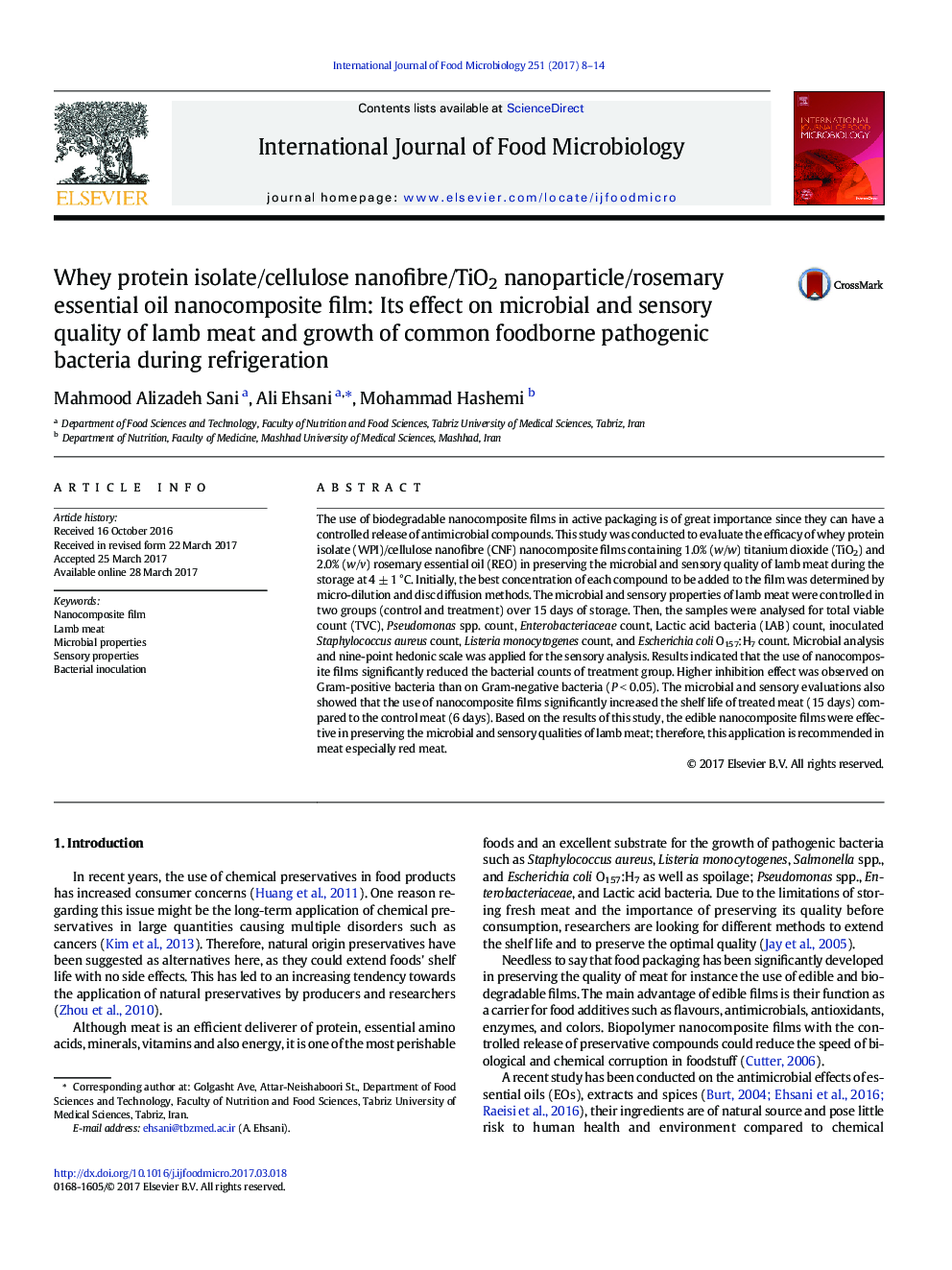| کد مقاله | کد نشریه | سال انتشار | مقاله انگلیسی | نسخه تمام متن |
|---|---|---|---|---|
| 5740715 | 1616532 | 2017 | 7 صفحه PDF | دانلود رایگان |
- Gram-positive bacteria showed higher sensitivity to the TiO2, REO and their combination.
- Nano-composite film containing TiO2 and REO inhibited the growth of spoilage and pathogenic bacteria in meat.
- Nano-composite film containing TiO2 and REO improved organoleptic properties of meat samples.
- Nano-composite film containing TiO2 and REO increased shelf life of meat samples.
The use of biodegradable nanocomposite films in active packaging is of great importance since they can have a controlled release of antimicrobial compounds. This study was conducted to evaluate the efficacy of whey protein isolate (WPI)/cellulose nanofibre (CNF) nanocomposite films containing 1.0% (w/w) titanium dioxide (TiO2) and 2.0% (w/v) rosemary essential oil (REO) in preserving the microbial and sensory quality of lamb meat during the storage at 4 ± 1 °C. Initially, the best concentration of each compound to be added to the film was determined by micro-dilution and disc diffusion methods. The microbial and sensory properties of lamb meat were controlled in two groups (control and treatment) over 15 days of storage. Then, the samples were analysed for total viable count (TVC), Pseudomonas spp. count, Enterobacteriaceae count, Lactic acid bacteria (LAB) count, inoculated Staphylococcus aureus count, Listeria monocytogenes count, and Escherichia coli O157:H7 count. Microbial analysis and nine-point hedonic scale was applied for the sensory analysis. Results indicated that the use of nanocomposite films significantly reduced the bacterial counts of treatment group. Higher inhibition effect was observed on Gram-positive bacteria than on Gram-negative bacteria (P < 0.05). The microbial and sensory evaluations also showed that the use of nanocomposite films significantly increased the shelf life of treated meat (15 days) compared to the control meat (6 days). Based on the results of this study, the edible nanocomposite films were effective in preserving the microbial and sensory qualities of lamb meat; therefore, this application is recommended in meat especially red meat.
Journal: International Journal of Food Microbiology - Volume 251, 19 June 2017, Pages 8-14
